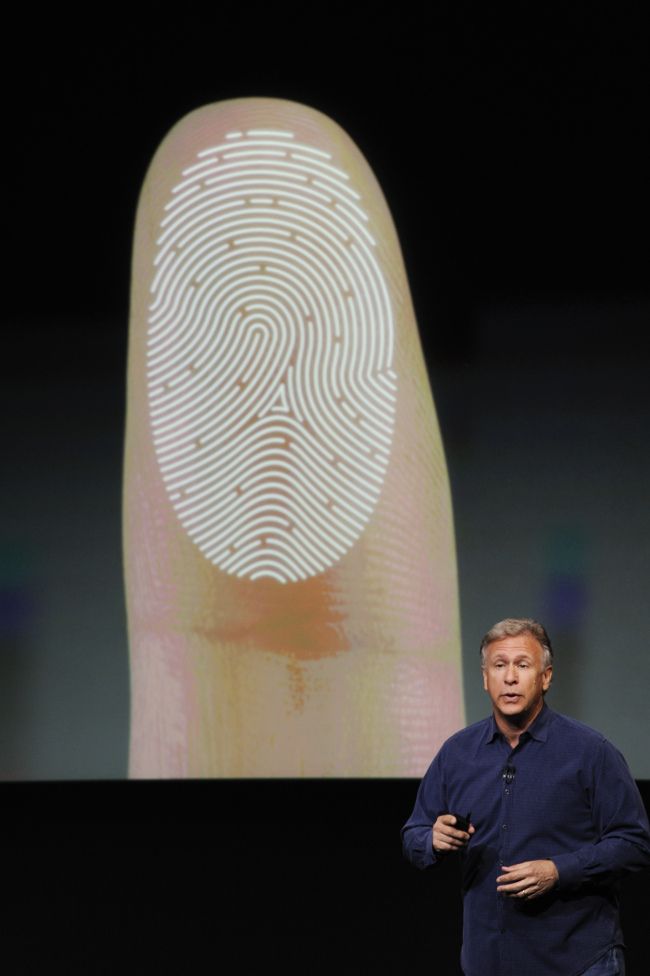Samsung bets on fingerprint tech for Galaxy S5
2014-01-19 19:50
 |
| Global handset makers have increasingly adopted fingerprint sensors as a new identification technology. Philip Schiller, senior vice president of worldwide marketing at Apple, introduces the new iPhone 5S during a product announcement in Cupertino, California, on Sept. 10. (Bloomberg) |
After California-based Apple spearheaded fingerprint sensors last year, Samsung Electronics, the world’s largest smartphone maker, is poised to feature the sensors in its upcoming smartphone, the Galaxy S5.
“Among the different types of biometric sensors that Samsung is testing for its Galaxy S5, the tech giant will go for fingerprint authentication rather than unintuitive user experience of iris recognition,” said an industry source who declined to be named.
“Who would want to put their handset up close to their eyes for authentication in places like movie theaters and bed, or even while they are driving?,” the industry source added.
It is said that Samsung is working on putting fingerprint sensors under the display panel so that users can scan their fingerprints on the display.
Lee Young-hee, an executive vice president of Samsung Electronics, said in a recent interview that even though the Korean firm is currently studying the possibility of applying iris recognition technology to its next smartphone, nothing is set in stone.
Other global smartphone makers are following suit. LG Electronics is also testing the prototype of its G3 sporting a fingerprint scanner, according to industry sources. Apple’s iPhone S5 is equipped with an area-type fingerprint sensor under the smartphone’s home button.
In addition to the uncomfortable nature of iris recognition, there are also other reasons why the scanners will hardly be installed in the Galaxy S5, according to the sources.
“In order to enable iris recognition on a smartphone, an extra camera designed specifically for the identification technology should be installed, which will make the smartphone bigger since there will be three camera modules,” another market source said.
“And since iris recognition requires a long range camera, the smartphone, if fitted with the camera, needs a completely different design from previous models,” he noted.
It is forecast that it would take one or two more years for customers to be able to see a smartphone sporting one front-facing camera that enables users to both scan their iris and take selfies.
IriTech Inc. and Sambon Precision and Electronics Co., biometrics firms that have often been called possible suppliers of iris recognition sensors to Samsung, also denied reports by some Korean news outlets that they are working with Samsung to supply the scanners.
Fingerprint Cards AB, a Swedish fingerprint sensor developer, previously said that it was in talks with major global smartphone makers including Korean ones, and that most of them would adopt fingerprint sensors this year.
Those who catch the most attention by introducing advanced identification technology will be able to take the lead in the mobile market this year, according to Jang Jin, a researcher and professor at the advanced display research center at Kyung Hee University in Seoul.
“As other features of premium smartphones, including the resolution of displays, and mobile processors (such as a 64-bit chip), will not show much difference, security features including fingerprint authentication will be a game-changing factor in this year’s smartphone market,” the professor said.
By Kim Young-won (wone0102@heraldcorp.com)


